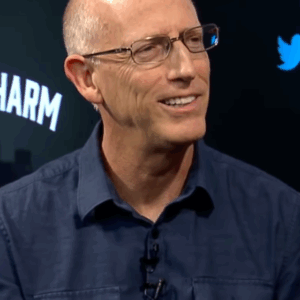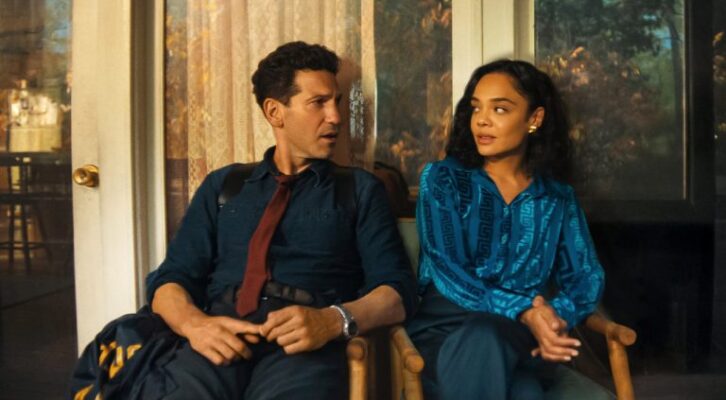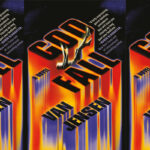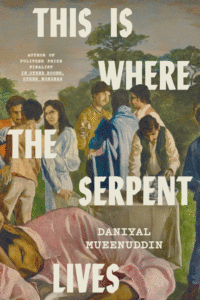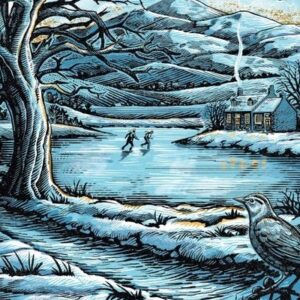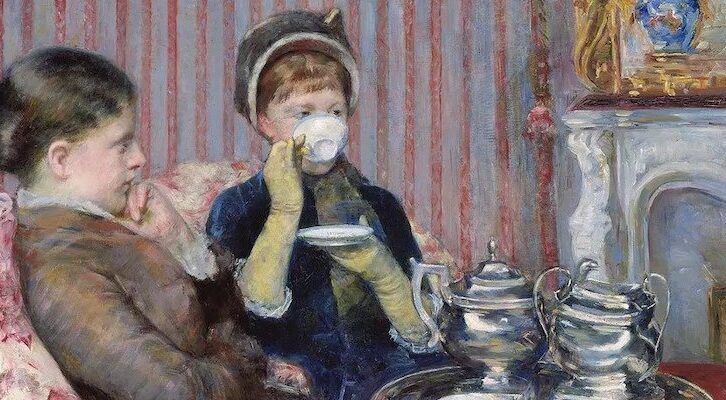
Trying to Find My Voice on the Page: On Self-Doubt and Finding the Confidence it Takes to Write
"I may not know exactly where I’m going when I start a piece of writing, but I’m sure I can find my way"
I’m twenty-two or twenty-three and sitting at the table playing cards with my father and brother. When it’s my turn, I admit I need the rules explained again. My mind is so distracted by self-doubts and worries about the family dynamics swirling around me that I can’t retain a simple game. My father says, as if stating the obvious, “You aren’t very bright, are you?”
My brother hears him, and I think my mother across the room does, too. But none of us contradicts this statement of family fact. I’m the youngest and therefore least intelligent, meaning least able to express myself. And I’m determined to be a writer.
Starting back in middle school, I retreat to my journal, hoping that in writing I’ll express the thoughts I can’t say aloud. It never occurs to me that the age gap between my siblings and me—seven and ten years—might explain my disadvantage. I want to be older and smarter than I am.
In high school, novels with teen protagonists seem sophomoric to me though I’m barely a sophomore. Hemingway’s short stories fascinate me with their adult infidelities and whispered tragedies. I write a first short story about a woman named Morgan who drinks too much in an unnamed foreign country with an unnamed man who doesn’t love her.
Trying to find my voice in writing leads me to steal from not just Hemingway but my brother, too. Some years after he leaves the house, I find a copy of the literary magazine he helped run when he was in high school. It contains a story about an older brother and younger sister who come upon a bird trapped under branches in a snowy wood and try to decide if they can save it. With sparse dialogue, the siblings leave the dying bird behind and do the difficult, inevitable task of being children, not saviors. I want to be the younger sister and to have that unspoken connection with my brother.
Trying to find my voice in writing leads me to steal from not just Hemingway but my brother, too.
I love that story, and so I do what I’d done with Hemingway. I take it and write a new story around it. In mine, a younger sister comes upon a story written by her older brother and appropriates it. There’s a conflict, maybe about the parents, and the kids don’t run back through the silent woods together. They end up separated and disenchanted from one another. I swipe my brother’s voice to jump-start my own and for the first time manage to express something that interests others. T.S. Elliot said, “Good writers borrow. Great writers steal.” But I steal because I’m not even a good writer, not yet anyway.
It takes chutzpah to write. A certain arrogance to think others want to hear your stories. I can spot writers—often men—who’ve been taught from the start that what they think is interesting and worthy. They carry themselves in life and on the page with confidence. Then there are writers like me—perhaps more often women—who write to prove that we do in fact know something. We may stumble in person but can summon the words on the written page. Our type of writer will win in the long run, we think. We’ll have the last say.
In high school, I continue to follow my brother’s footsteps, falling in love with a poet he admired. Denise Levertov wrote powerful anti-war poems, but it’s her love poems I memorize. I carry a copy of her New Directions paperback, Footprints, in my back pocket until it’s bent to my shape. Summer in the folds of your dress / mysterious fabric / and in the disturbing gentle grace of your neck. Anne Sexton’s love poems, ripe with sorrow and regret, also speak to me. Climb her like a monument, step after step. / She is solid. / As for me, I am a watercolor. / I wash off. I’ve had boyfriends by then, but nothing in my experience adds up to the passion in the lines I love.
I write constantly, reaching for something deeper and more transcendent yet with no idea how to get there. What a struggle to tell a fictional story with any truth to it and even worse to compose a personal essay for college applications. Draft after draft of rambling, empty words. My parents don’t even bother to fake a positive response. One night, with an application due the next day, I overhear my father whispering to my mother in the next room, What’s wrong with her? She can’t think straight. She can’t write!”
I’m mortified, found out for the hack that I am. But the arguments I never allowed myself at the dinner table, the retorts frozen on my lips, make me quietly determined. I might not be good yet, but no one’s going to stop me from trying. In the end, I submit a short story inspired by an experience while traveling overseas. To my surprise, I’m accepted where I want to go, a college that values creative writing.
At Wesleyan, I find a mentor, who, for our year of study together, is tough but doesn’t dissuade me from my dream of being a writer. In her comments at the bottom of my final short story, Annie Dillard says that I will write books for the rest of my life; I have what it takes to turn terrible first drafts into works of art. Her surprising words keep me going for decades, though I know I have what I always had: a quiet determination and, as yet, little skill.
Annie tells me to read Black Tickets. In her stories, Jayne Anne Phillips uses restraint to create powerful meaning. Keep it minimal. Leave your readers aching for more. Phillips’s sentences are as tough and clean as Raymond Carver’s, but she writes about girls and young women, people like me. Her short story Home is one I had wanted to write for years. Soon, I carry a paperback of Black Tickets everywhere I go. When I sit down to write, a copy is splayed open on my desk, as if Phillip’s words, her wisdom, can transfer onto my page.
At Sarah Lawrence for my MFA, Allan Gurganus and Joan Silber, brilliant writers, teach by sharing the works of other great writers—Chekov, Bable, O’Connor, Trevor, Monro. Reading well is the best way to learn to write, though how exactly that happens remains a mystery. I complete a first novel about a family mired in regrets and misunderstandings between parents of the Greatest Generation and children of the 60s and 70s. It gets a top agent and comes close to publication, but I don’t have sufficient distance on such personal terrain. I also don’t have any confidence I’ll do it better next time.
Still trying to find my voice on the page, I remain tongue tied with my family. I assume their thoughts are critical, so part of my mind is caught up anticipating their slights. I start a sentence with one idea and veer off into parenthetical clauses. A renowned political scientist and author of more than twenty books on Chinese politics, my father says, “There’s nothing more beautiful than a simple sentence. Just say it straight!” Hard to do with commands running through my brain to be forceful when feeling anything but.
It takes years to free myself from my tangled, inarticulate thoughts around others. Almost as long as it takes to find my voice on the page. After writing numerous short stories and five more unpublished novels, in my early fifties, my imagination carries me to historical rural China where my first two published novels, River of Dust and Dreams of the Red Phoenix, are set. By removing any shadow of myself from the narrative and telling a story in a distant place and time, I’m able to speak through my characters in a new way.
Inspired by my minister grandfather’s journals and Somerset Maugham’s The Painted Veil, my China novels tell imagined versions of my father’s childhood as the son of American missionaries. By inventing characters based on my grandparents and my father as a boy, I’m able to feel sympathy for them and break free from my father’s censure. I wrestle not only with him on every page, but also my family’s colonial legacy as Christians sent to convert the Chinese. Delving into that mired past, I take a stand against any presumed authority my family once held. It feels right and good to speak up through fiction.
The words flow more easily now. I loved writing my latest book, The Literary Undoing of Victoria Swann. A lady in Gilded Age Boston, Victoria couldn’t be further removed from me, yet as a woman novelist, she and I have a lot in common. An author of romance and adventure tales, she longs to tell her own true story but is thwarted by the men in her life—her publisher, who wants her to continue her lucrative series and her husband, an addicted ne’er do well, who sponges off her income. When she goes against their wishes, she loses everything and must rebuild her life, mostly with the help of other women who understand her predicament.
A lady in Gilded Age Boston, Victoria couldn’t be further removed from me, yet as a woman novelist, she and I have a lot in common.
I use a light tone, playing on romance novel tropes, to create a nineteenth-century world of flowing dresses, feathered hats, and characters who I came to love. I also try to tell a serious story that could easily take place today.
Like my own story, it centers around a woman who hasn’t been taught to appreciate herself. Though a success, she’s kept in her place by low expectations and the sexism of those closest to her. But she has a hidden determination to prove them wrong. Far from a hack, she’s a spokeswoman for others who struggle to be seen and heard. I don’t think it’s giving too much away to say that by the end of the novel Victoria has found her true voice.
When I sit down to write now, I feel her same sense of confidence, purpose, and joy. I may not know exactly where I’m going when I start a piece of writing, but I’m sure I can find my way. I trust that the words will come. I know I’ll speak my mind, both on and off the page.
______________________________

The Literary Undoing of Victoria Swann by Virginia Pye is available via Regal House.
Virginia Pye
Virginia Pye is an author in Cambridge, MA. Her latest novel, The Literary Undoing of Victoria Swann, is available now from Regal House Publishing.









